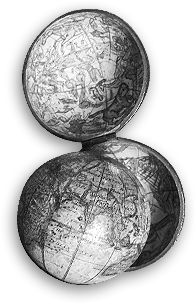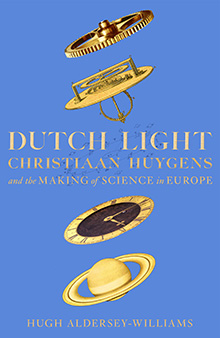Dutch Light
Picador, 2020
‘At last – a scintillating biography of Christiaan Huygens, the Dutch mathematician, astronomer and inventor whose splendour has been unjustly eclipsed by the aura of Isaac Newton... Hugh Aldersey-Williams has evocatively illuminated this brilliant polymath who laid the foundations of modern European science.’ Patricia Fara
‘Fascinating... an impressive piece of scholarship. I learned a lot.’ John Gribbin
I became fascinated by 17th century science when writing about Sir Thomas Browne, the Norwich physician, man of letters and mythbuster. Browne stood at the threshold of modern science. I found the Huygens family similarly positioned: Christiaan Huygens had truly entered the building, becoming one of the first professionally organized scientists, more so in a way than Francis Bacon or even Isaac Newton.
But as I explored his life, I discovered that I would also have to say something about Christiaan’s father, who lived almost as long as his son. Constantijn, the poet, composer and diplomat, had not quite crossed that threshold, being, like Browne, curious about all things, but not equipped to investigate them properly. The constant interplay between the two men – and their myriad respective correspondents, who included many of the princes, philosophers, artists and scientists of the day – allowed me to dramatize the unfolding scientific revolution against the glittering backdrop of the Dutch ‘Golden Age’.
Christiaan Huygens was more than a supreme practitioner – a gifted observer, a skilled craftsman, and so adept at mathematics as to be able to combine theory, experiment and observation with spectacular results. He also understood that science was a universal project, and worked throughout his life with colleagues in France, England and many other countries in Europe. Though Dutch, he was the leading figure in setting up the French Academy of Sciences, as well as the first foreign fellow of the Royal Society.
His life story intersects with Rembrandt, Descartes and Spinoza, Louis XIV and William III, as well as the scientific figures of Newton, Boyle and Hooke, and mathematicians Mersenne, Pascal, Fermat and Leibniz.

